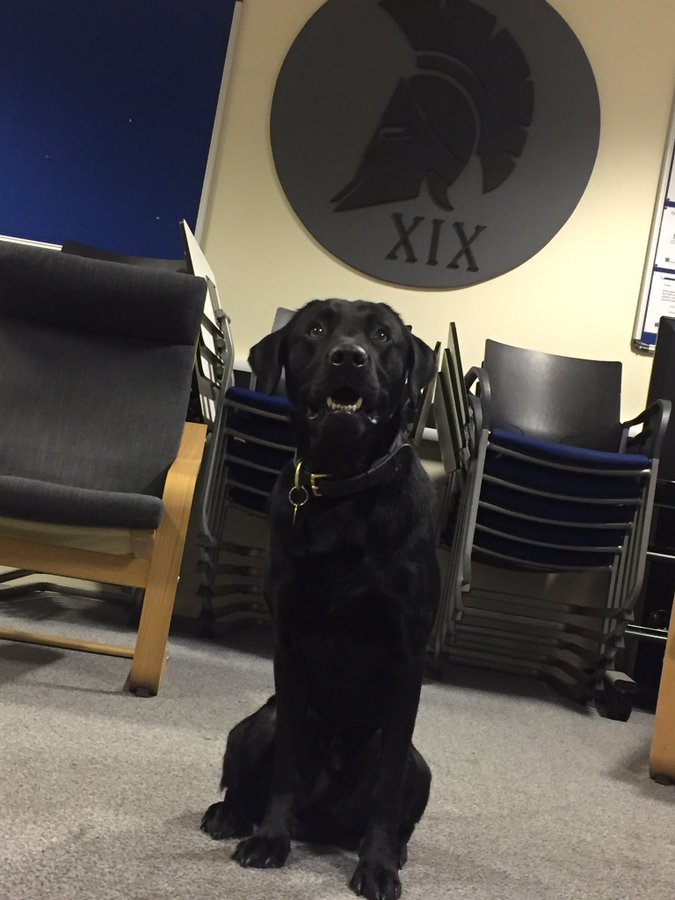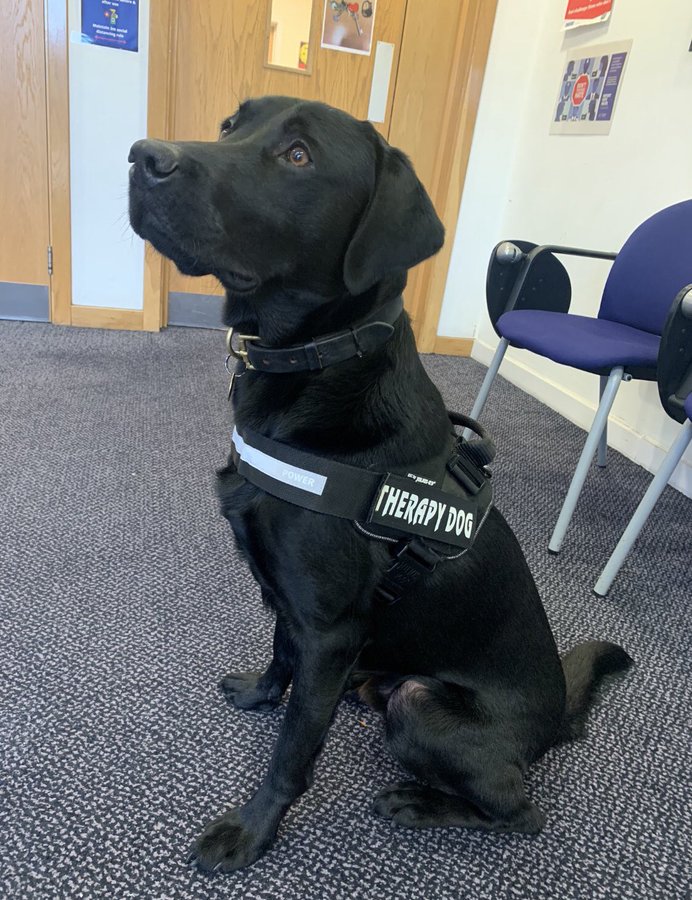Training to become a police dog is serious business.
Many pups, no matter how well-trained, simply can’t pass all the vigorous tests required to sniff out drugs, perpetrators, and bombs. Of course, they’re all still the best boys and girls!
Dexter, a black Labrador retriever, went through all the training to become a police dog with England’s Metropolitan Police, but when all was said and done, he just wasn’t cut out for the job. For one thing, the work was stressing him out. He started displaying signs of distress during training sessions.
“If a dog isn’t settling or isn’t happy in their role, it’s our duty to take them out,” said Dexter’s handler, PC Mike Sheather. “It was like one of my old school reports – lacked focus, immature, concentration issues. They actually used the word ‘gregarious.'”
That’s right, the other reason Dexter was rejected from the job was that he is too friendly!
“He’s got a really good nose on him, it’s just that his personality didn’t lend itself to being a drugs dog,” Mike explained. “He’s just too good around people. He got withdrawn because he was too sociable.”
Mike is a seasoned dog handler with the police force, and he hated to see such a good animal with so much training go to waste. One day, he was discussing the problem with a friend when the subject of stress dogs in the United States Army came up.
Science tells us that just petting a dog releases a feel-good chemical in the brain called oxytocin, and Mike realized right away that while Dexter might not be a tough police dog, his special skill is lightening the mood and offering comfort. That’s how Dexter became Scotland Yard’s first-ever “Wellbeing Dog.”
Since he took his post, Dexter has had his work cut out for him.
Amid the novel coronavirus pandemic, he has visited anxious first responders and health care workers, police officers who have experienced trauma, and local residents who are exhausted from lockdowns and worry. Wherever he goes, Dexter inspires smiles!
“The response I have when Dexter works his magic is really positive,”Mike said.
Interaction with dogs has been scientifically proven to lower heart rate, blood pressure, and increase levels of the stress-reducing hormone oxytocin, which decreases production of the stress hormone cortisol. When Dexter enters the room, the mood is instantly lightened.
Dexter and Mike have seen so much success that the department plans to expand their wellness dog program. No wonder they’re calling the initiative “the healing power of fur.”
Share this story to congratulate Dexter on his new gig.
Want to be happier in just 5 minutes a day? Sign up for Morning Smile and join over 455,000+ people who start each day with good news.







